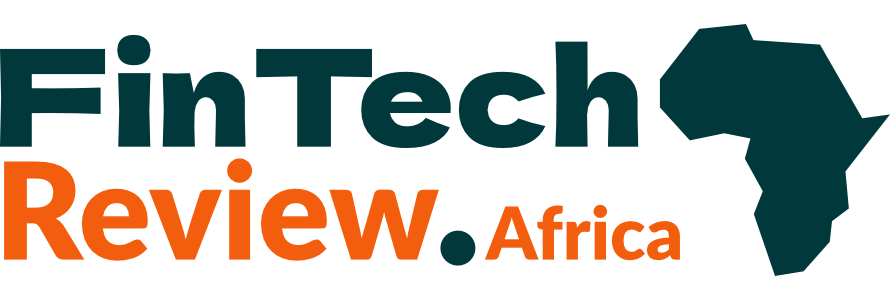Africa Overview for C-Suite, Investors, and Bankers: FT Partners, Investors, and the Pan-African Fintech & FS Landscape

Africa’s fintech and financial services (FS) sector has evolved into a multi-speed, capital-intensive ecosystem with clear cross-border growth and regional scale opportunities.
FT Partners, with its fintech-centric advisory pedigree, is well-positioned to connect African fintechs with international capital, strategic buyers, and multi-market growth strategies.
The pan-African opportunity hinges on cross-border rails, currency-hedged capital structures, and regulatory-amenable markets that collectively de-risk and accelerate scale.
FT Partners: strategic why-and-how for Africa
Core competencies relevant to Africa:
Cross-border M&A and capital raises for fintechs, payments, lending, insurtech, and regtech.
Capital-structure optimization guidance (equity, convertible instruments, and alternatives like revenue-based financing) with currency and macro-portfolio risk considerations.
Regulatory diligence and governance advisory to navigate multi-jurisdictional licensing, data localization, and KYC/AML.
Africa-specific value proposition:
Global network access to strategic buyers and growth-stage funds seeking diversified exposure to high-growth digital finance networks.
Structured financing playbooks that accommodate local currency dynamics and multi-country rollouts.
Thought leadership and deal origination focused on regional integration, AfCFTA-enabled scaling, and interoperability across payments rails.
Pan-African market context for decision-making
Growth drivers:
Demographics: Young, digitally native populations driving rapid adoption of digital payments, lending, and digital-first financial services.
Inclusion and reach: Mobile wallets, agent networks, and open API-enabled platforms expanding financial access and distribution.
Regional integration: AfCFTA creates scale economies and cross-border value capture for platforms with multi-country footprints.
Market structure and risk considerations:
Heterogeneous regulatory environments require flexible, jurisdiction-aware strategies.
Currency volatility and FX risk necessitate capital structures that incorporate hedging or local currency funding.
Varying stages of capital markets across Africa—active VC/PE in major hubs with emerging exit channels.
High-level deal and investment themes across Africa
Payments and digital wallets: Large addressable market with strong network effects; favorable unit economics when scale is achieved; attractive revenue multiples for platform-enabled ecosystems.
Digital lending and credit tech: Growth anchored by data-driven risk models and scalable underwriting; investor appetite increases with risk controls and profitability trajectories.
Neobanks and challenger banks: Strategic value from deposits growth, cross-sell economics, and SME banking capabilities; regulatory capital considerations influence deal terms.
Insurtech and regtech: Distribution-led growth and compliance enablement as core value drivers; potential for synergistic partnerships with incumbents.
Cross-border infrastructure: Trade finance, cross-border payments, and interoperability platforms positioned to capture regional efficiencies and reduce settlement friction.
Executive implications for C-suite and bankers
Strategic partnerships and control dynamics:
Consider minority vs. majority stakes depending on growth cadence, regulatory constraints, and desired governance.
Use milestone-based financings to align capital deployment with regulatory progress, liquidity milestones, or platform usage metrics.
Capital structure strategy:
Balance between equity, convertible instruments, and revenue-based financing to optimize dilution versus growth leverage.
Incorporate currency-hedging considerations and, where appropriate, local currency facilities to align revenue streams with funding.
Regulatory and compliance posture:
Establish a concise regulatory readiness narrative for international investors, including licensing status, KYC/AML controls, data protection, and cross-border data transfer plans.
Highlight governance standards, cyber risk management, and transparent reporting to reduce perceived country risk.
Exit and value creation levers:
Cross-border rollups and regional platforms offer potential for multi-market exits or strategic sales to global fintech incumbents.
Public-market readiness for select jurisdictions may emerge with improved profitability, visibility, and governance.
Pan-African market-by-market considerations (high-level)
West Africa (Nigeria, Ghana, Côte d’Ivoire): Rapid payments growth; policy emphasis on interoperability and consumer protection; leverage regional hubs for regional distribution.
East Africa (Kenya, Tanzania, Rwanda, Uganda):成熟 mobile money ecosystems; cross-border remittance potential; regulatory sandbox acceleration.
Southern Africa (South Africa, Namibia, Zambia): Diversified fintech base, mature capital markets, potential for debt and equity financing; strong insurtech and insurtech distribution.
North Africa (Egypt, Morocco, Tunisia): Reform momentum and European ties; opportunities in trade finance and formal SME lending.
Regional integration: AfCFTA-enabled scaling, cross-border payments, and common digital identity programs offer platform leverage and efficiency gains.
Investor landscape—a concise map for executives
VC and growth funds: Target scalable fintech platforms with compelling unit economics, defensible data moats, and multi-market potential.
Strategic corporates: Banks, payments networks, and insurers seeking distribution, data access, and co-development advantages.
Development finance institutions (DFIs): Catalytic capital and risk-sharing to de-risk larger cross-border deals and support governance improvements.
Exit dynamics: Cross-border M&A remains the primary pathway; selective regional listings or dual listings may arise as markets mature and profitability improves.
Impact considerations: Investors increasingly weigh financial returns alongside financial inclusion, job creation, and development impact metrics.
High-level diligence and due-diligence signals for board-level use
Valuation discipline: Look for scalable revenue trajectories, diversified monetization streams, and clear path to profitability; compare against regional comps with analogous risk profiles.
Regulatory clearance timeline: Align deal timing with license approvals, product approvals, and cross-border regulatory milestones.
Currency risk management: Ensure currency exposure is factored into cap tables and that hedging strategies are in place for international capital.
Governance and risk posture: Strong cyber, fraud, and governance controls to support investor confidence and long-term value creation.
Closing perspective for executive decision-makers
Africa is moving from a frontier-fintech narrative to a multi-speed, capital-intensive growth frontier. FT Partners’ depth in fintech, coupled with a pan-African lens and global capital access, can facilitate meaningful cross-border deals, multi-market financings, and strategic exits.
The most compelling opportunities lie in platforms with robust data networks, interoperable payment rails, and scalable business models that can expand regionally while maintaining prudent risk and capital discipline.
A measured approach—integrating currency-aware capital structures, clear regulatory readiness, and a regional growth plan—will maximize value for C-suite leaders, investors, and bankers evaluating Africa-centric fintech opportunities.

 Francis
Francis 





